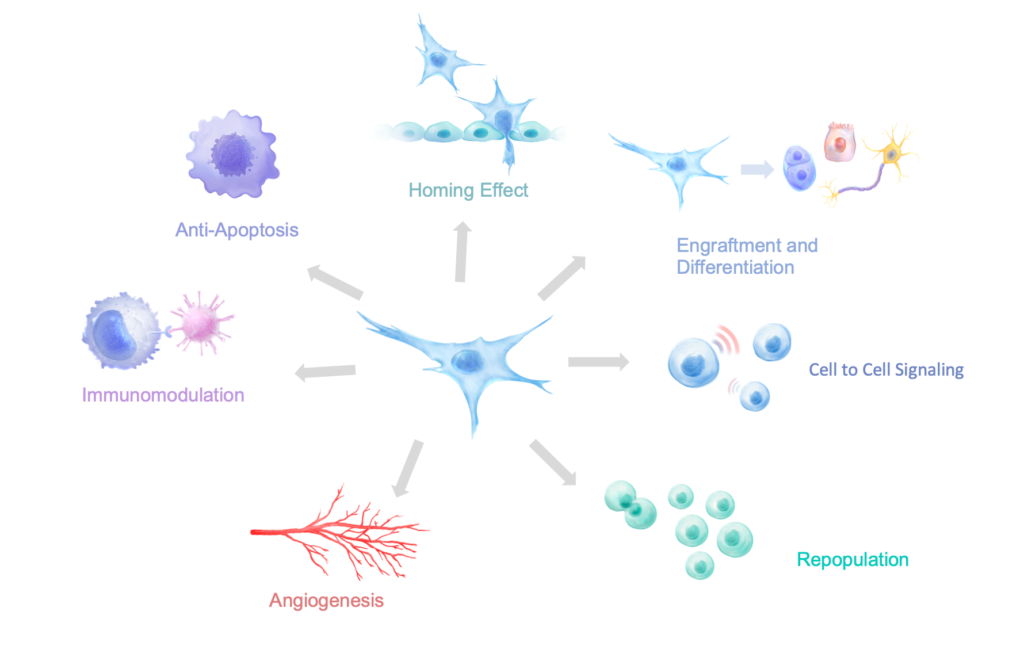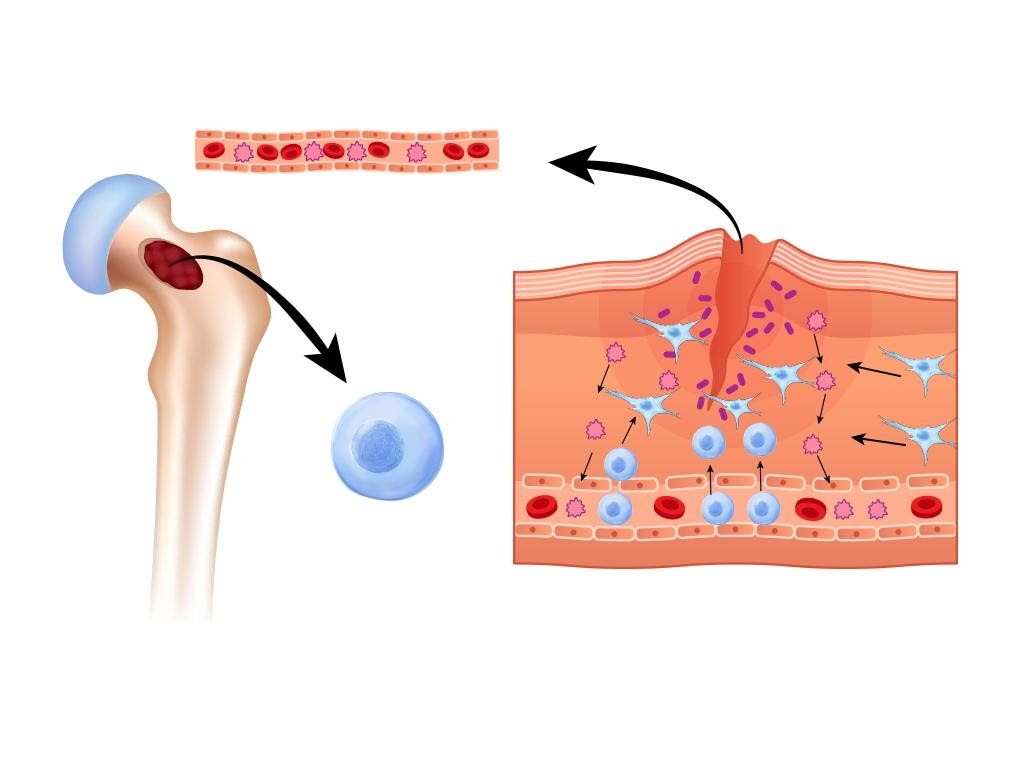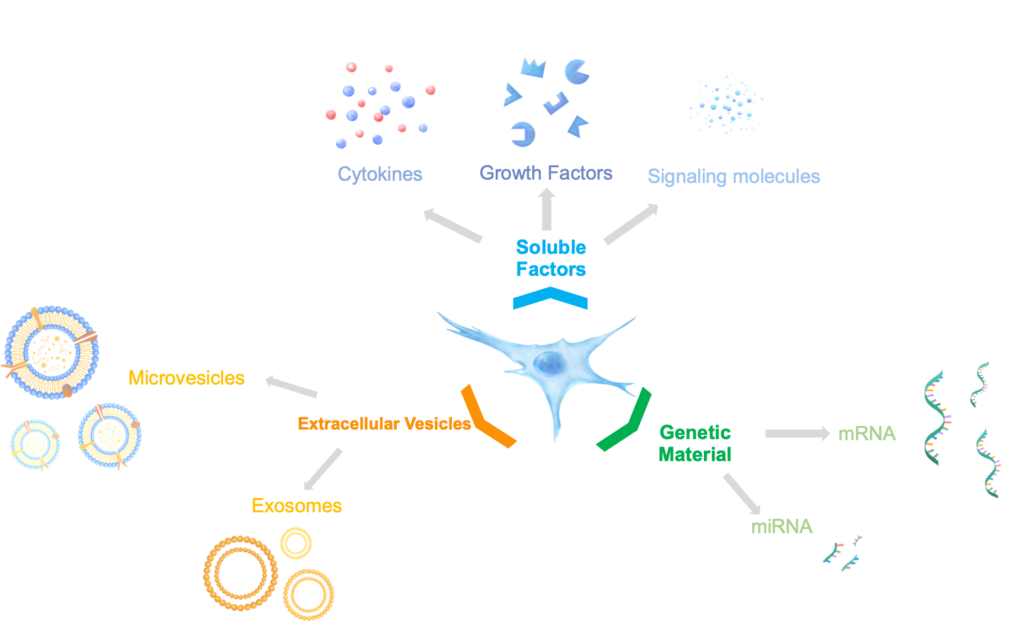Mesenchymal Stem Cells
Mesenchymal Stem Cells (MSCs) exhibit the fundamental properties of stem cells (self renewal and ability to specialize into other cell types)
However, recent research has shown that MSCs are a special class of stem cells with much broader therapeutic capabilities
Their remarkable therapeutic properties has led them to be referred to as “first responder” cells
Key Actions of Mesenchymal Stem Cells:
- MSCs can “home in” to the site of trauma or disease
- MSCs respond to local signalling environment in a context-dependent way
MSCs signal to surrounding cells to coordinate local response and regeneration
Key Therapeutic Function of Mesenchymal Stem Cells

MSCs:
- reduce inflammation
- activate local stem cells to produce new cells
- increase the migration of cells into damaged regions
- protect cells from dying
- stimulate the formation of new blood vessels
- exhibit neuroprotective effects
- Stimulate neural plasticity including axon growth and synapse formation

MSCs respond to chemical signals released by diseased, dysfunctional or injured tissue and then “home in” to the location and coordinate local response.
Specific signalling molecule can be given along side mesenchymal stem cells to increase the targeting of treatments. In some chronic conditions, and in cases on ageing frailty, the bodies own repair signals are very weak and require enhancing for desired therapeutic outcomes.

Mesenchymal Stem Cells – Medical Signaling Cells: Stem Cells
Most of the therapeutic effects of MSCs are mediated through cell signaling. This has led the scientist who originally discovered and name MSCS, Prof Arnold Caplan, to propose renaming MSCs to Medical Signalling Cells.
MSCs produce a unique array of signaling molecules which are the primary mediators of therapeutic effects.
Which Type of Service Are You Interested In?
